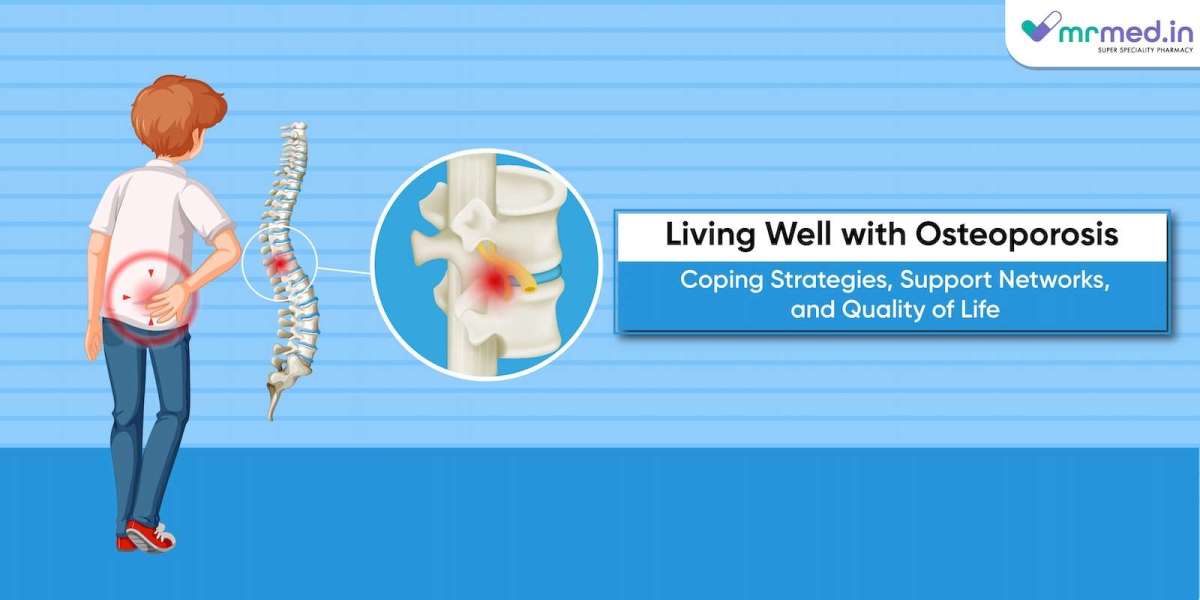Struggling with Osteoporosis? Here are 5 Tips to Help You!
It is natural that if you are an individual fighting osteoporosis to worry about how this deadly disease will impact your daily life. However, having osteoporosis doesn't necessarily mean you have to give up all your activities and personal interests that matter to you. Generally, you can continue your life as usual like others with only a few adjustments. Here are 5 proactive tips for you to cope with osteoporosis.
5 Tips for Living with Osteoporosis
Here are five tips for individuals fighting osteoporosis:
1. Avoid Falls
To reduce your risk of broken bones, consider implementing lifestyle changes, ensuring you take your osteoporosis medication correctly, and making practical adjustments to your daily routine.
Remember, any positive change you make is beneficial. However, the more adjustments you incorporate, it is more likely for you to avoid bone fractures.
Here is a checklist for bone health – It is never too late to start taking action to protect your bones. Identify any areas where you can make changes to enhance bone strength.
- Avoid slips, trips, and falls by making practical modifications to your daily activities and surroundings to increase confidence and stability.
- Consider whether medication is necessary. Osteoporosis medicine treatments can strengthen bones and decrease the risk of fractures. Be aware of early warning signs of osteoporosis.
- Incorporate balance exercises into your routine. Certain exercises can improve stability and balance, helping you feel safer and more secure on your feet, just like before.
2. Recovery
When you break a bone, it does not necessarily mean that you are affected by osteoporosis, so it can heal like normal. Some breaks might need surgery, while others can heal on their own. Usually, it takes about 6 to 12 weeks for a bone to heal, but sometimes it takes longer.
Here are some ways to help your bone heal faster:
- Eat foods with lots of protein in them.
- Don't smoke because it can slow down the healing process.
- Rest and take it easy.
During recovery:
- If you break your wrist, it usually gets better in 6 to 12 weeks.
- A spinal fracture happens when a bone in your spine gets squashed because it's weak.
- If you break your hip, you might need surgery to fix it.
3. Physical Activity
Engaging in exercise and physical activity is crucial for managing osteoporosis and maintaining bone health. Rather than reducing physical activity, individuals with or at risk of osteoporosis should aim to increase their exercise levels. Physical activity offers numerous benefits and is highly unlikely to cause a broken bone.
If you have spinal fractures or a history of multiple fractures, you may need to modify certain exercises for safety. We're here to assist you in making these adjustments so you can continue enjoying your preferred lifestyle to the fullest extent possible.
For those using wheelchairs, weight-bearing exercises can be approached differently. Whenever possible, standing to support your body's weight with your leg bones is beneficial. If standing isn't feasible, you can still strengthen your arm bones by using light dumbbells.
Selecting appropriate exercises and movements is essential. Exercise and safe movement contribute to bone health and osteoporosis management in three primary ways:
- Promoting bone and muscle strength
- Improving balance and stability
- Caring for your back
4. Pain Management
If you are experiencing pain following a broken bone, there are strategies available to manage it effectively, allowing you to carry on with your daily activities as comfortably as possible. Feeling compelled to give up activities you enjoy due to pain is a common reaction, but it doesn't have to be your reality.
Effectively managing your pain can enhance your quality of sleep and promote better mental well-being. Both of these factors contribute to your overall ability to cope with pain when it arises.
Since everyone responds to pain differently, what works for one person may not necessarily work for another. Establishing a cooperative relationship between you, your family, and your doctor is a valuable starting point.
5. Taking Medications Regularly
To get the best from your osteoporosis medicines, follow the instructions carefully. Stick to a routine for taking them, like on bin day. Eat healthy for your bones and stay active. Trust that your meds are working, even if you don't feel it right away. If you keep breaking bones, talk to your doctor about other options.
Conclusion
Remember, not everyone with osteoporosis will experience a bone fracture. If you don't break a bone, you won't necessarily endure pain or other long-term issues. Even if you do suffer a fracture, it doesn't automatically mean you'll experience pain or ongoing problems. If symptoms do arise, there are ways to manage them, enabling you to maintain the highest quality of life possible. We're here to support you in living well with osteoporosis.









